
Sign up for The Wanderful newletter
Join our growing community of people looking to live the simple life!
Let’s build your van now
Join our growing community of people looking to live the Simple Life




)
A lot of people assume they will be chasing the heat, but eventually decide they want to hit the slopes and live a winter vanlife for a while. This is actually what happened to me, and thankfully I was prepared for all seasons.
Surprisingly, I see a lot of people planning their Van Build without considering the colder temperatures they might experience.
As they say, a little bit of planning can go a long way. If you decide that winter is in your vanlife future before beginning your build, you can take quite a few short cuts.
If you are one of the brave souls who are planning to tackle your own build, then properly planning your insulation is critical.
I’m not going to go into extreme detail here on the types of insulation and the pros and cons of each. I’ll save that for another article, but I do want to draw some attention to it.
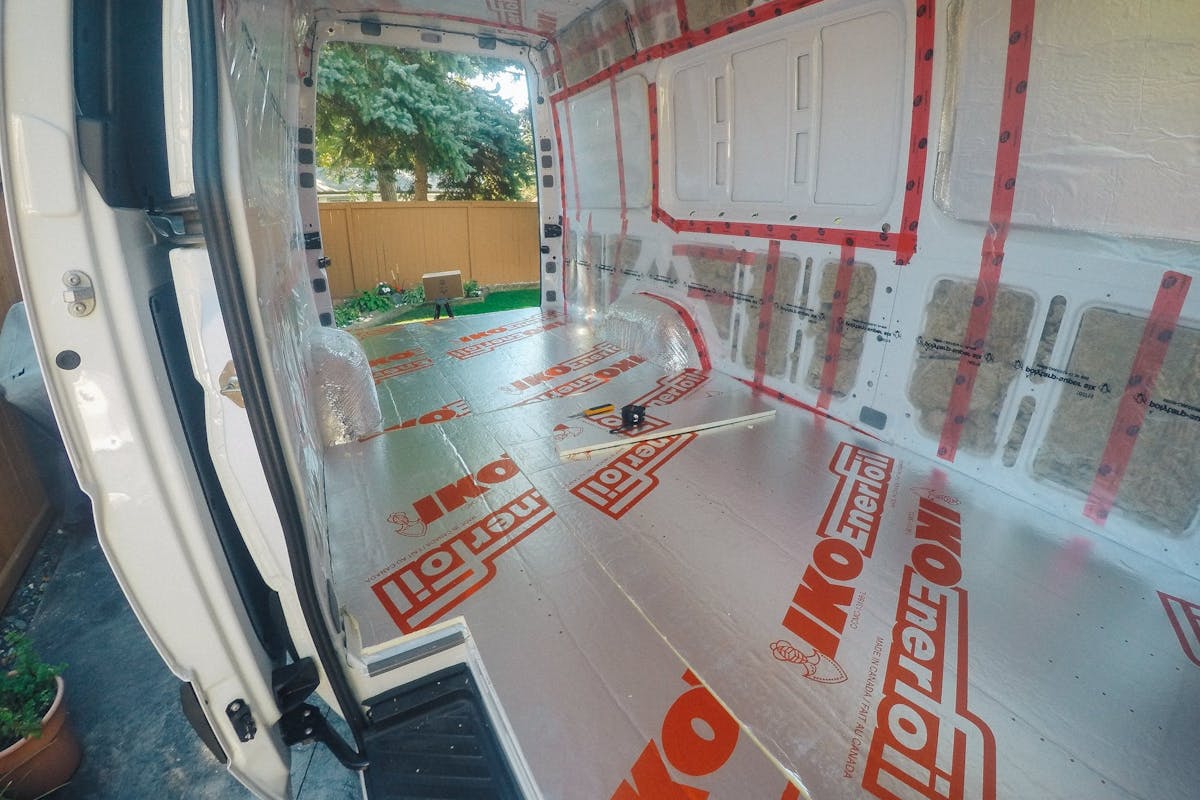
Sometimes it’s hard for people to allocate a good portion of their time and budget to insulation. I see people cutting corners on this very important step, generally from a lack of understanding of how insulation works or how crucial it is.
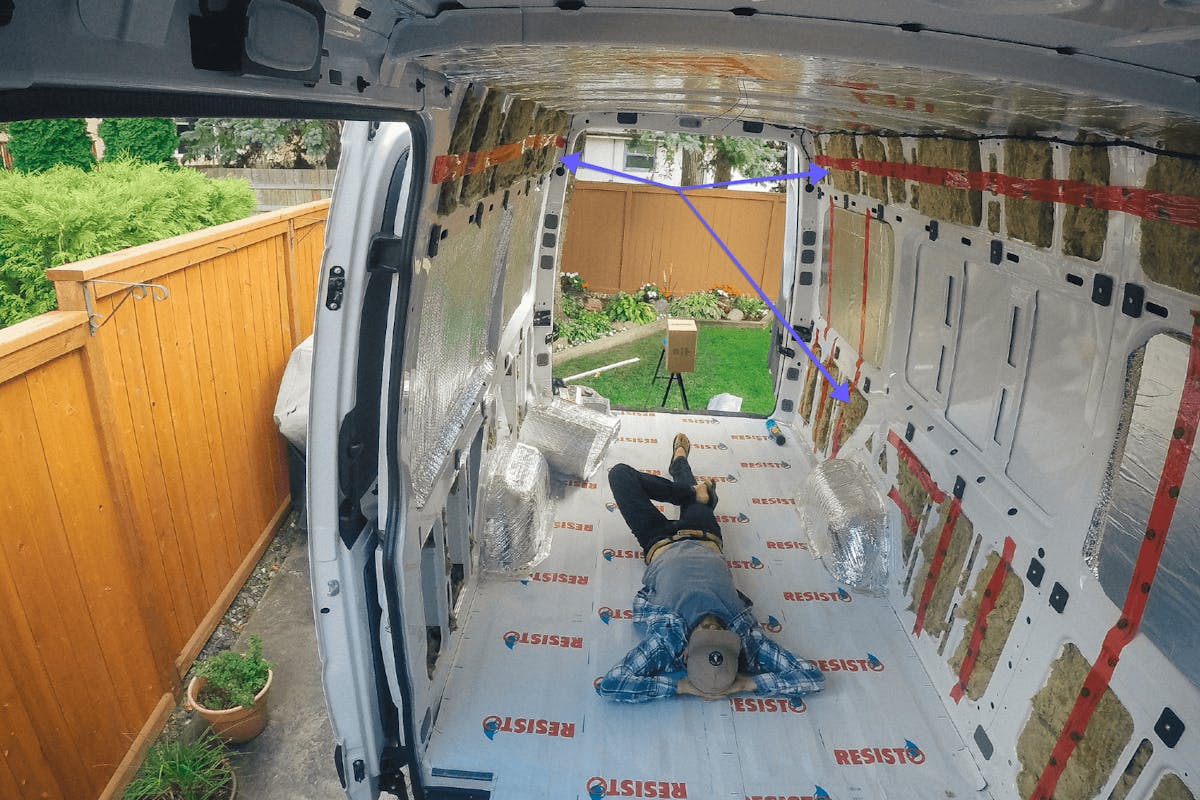
For crying out loud, folks, insulate the floor of the van.
I’ve never understood people that insulate the walls and ceilings but then choose not to insulate the floor. I’ve been in vans where the dog’s water dish is frozen to the non-insulated floor.
Insulation isn’t fun to think about or spend money on, but I promise you will not regret it.
If you’re anything like me, you’re going to want to toss all your tanks underneath the van to help maximize interior storage. Well if you plan on spending time in winter climates, you are quickly going to realize that having a certain amount of interior water storage is critical.
Luckily for me, I was able to add in some interior water storage grey and fresh with some unique thinking but for a lot of people winter vanlife just would not be possible with their current plumbing set up.
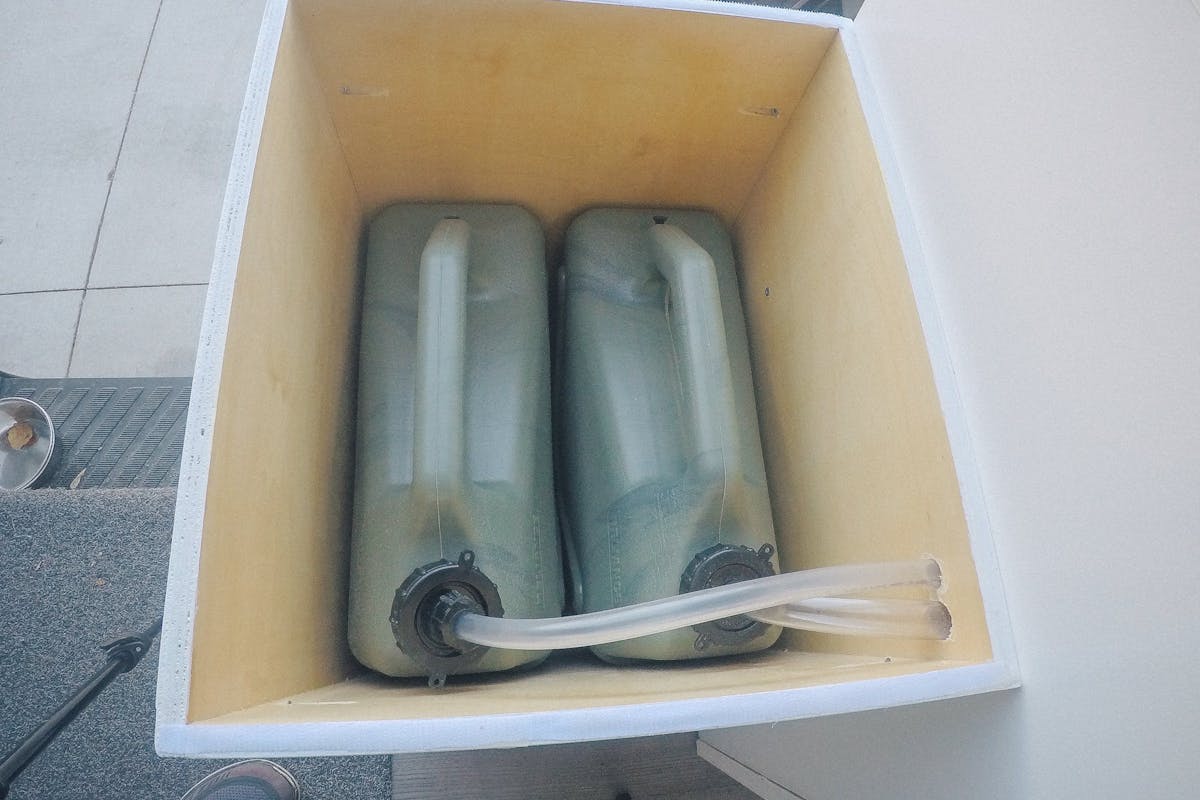
When switching from warm to cold climates, having the ability to properly winterize your van is crucial.
In my van, I am able to connect my compressor to an inline fitting and blow out all my water lines that run under the van and close off that part of the system. This gives me peace of mind that my external lines are not going to freeze in cold climates and I can still utilize the internal tank system I have in my van.
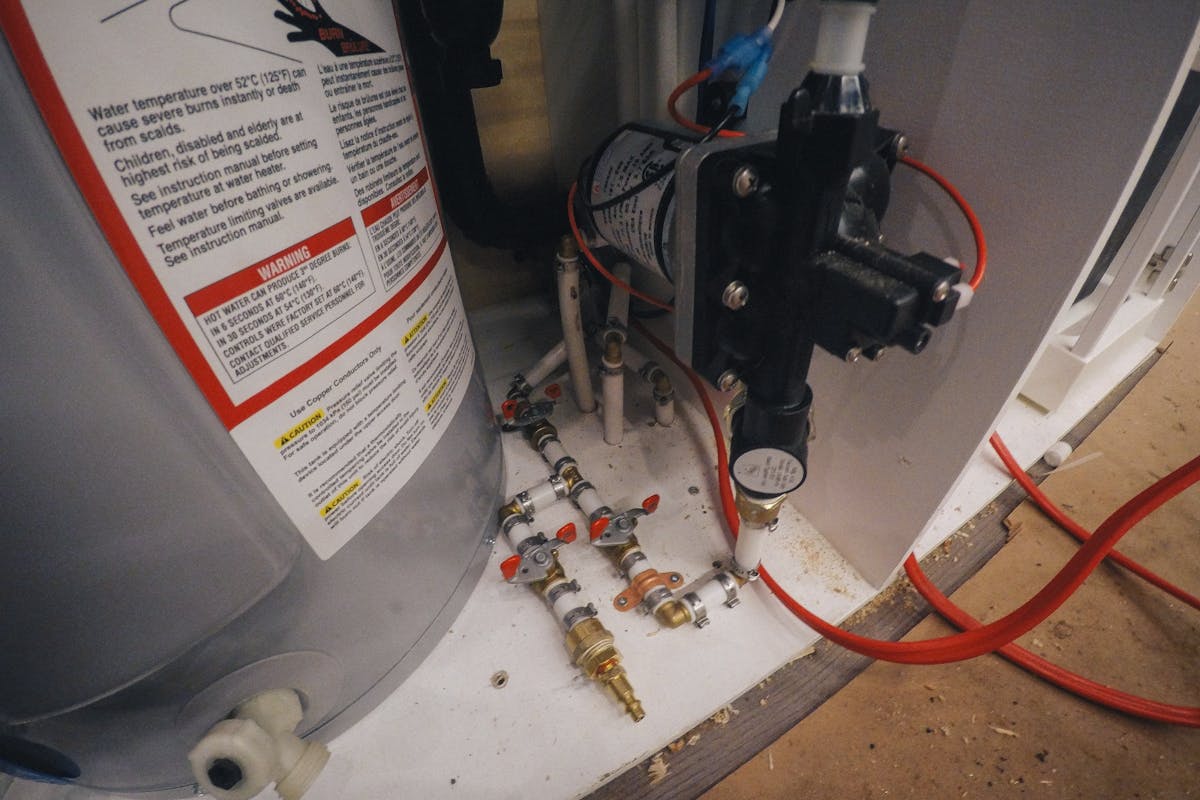
This topic is in constant debate in the community, but personally, having some sort of heat source is an absolute must.
The most common option is probably the Espar D2 diesel heater. Typically, Espar Heaters are installed under the passenger seat. To power the unit, you would use a secondary fuel pump to draw diesel from the vehicle’s tank.
This option is a very efficient and cost-effective way of warming the van.
I have had my mind in -30 weather and can get the 170 Sprinter to around 18C which is perfect in the winter.
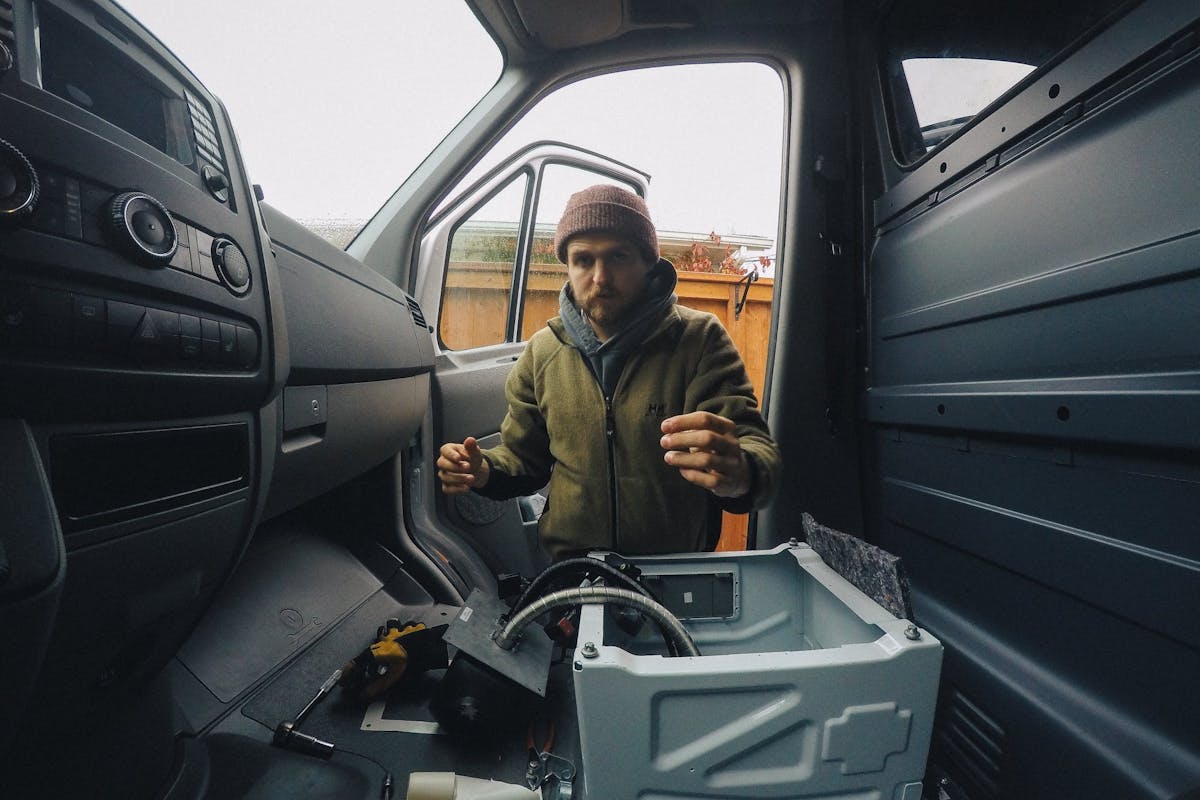
If you’re not interested in the Espar D2 or a similar diesel fired heating system, many people turn to portable propane heat sources such as the Mr. Buddy Heater. The Mr. Buddy is great in a pinch solution but it has its drawbacks in my opinion:
Overall, the Mr. Buddy is probably fine in a pinch, but I don’t think it’s a great long-term solution.
Inside our Build Guide, I go into much more detail on the Espar D2 and exactly how I went about installing it in my van.

Insulated window covers are a must-have for vanlife, especially if you plan on travelling in winter climates. Along with your van’s insulation, covering up the windows will also help to regulate the temperature inside your van.

When it snows, do your best to get yoru solar panels cleaned off as soon as possible. This is a lesson I had to learn the hard way.
Reason 1
Solar power is at a premium in the winter. Days are shorter, the sun is lower and cloudy days are plentiful.
Reason 2
You want the opportunity to shovel SNOW, not ICE. Do it while the snow is fluffy. It’s nearly impossible to remove ice without damaging your panels.
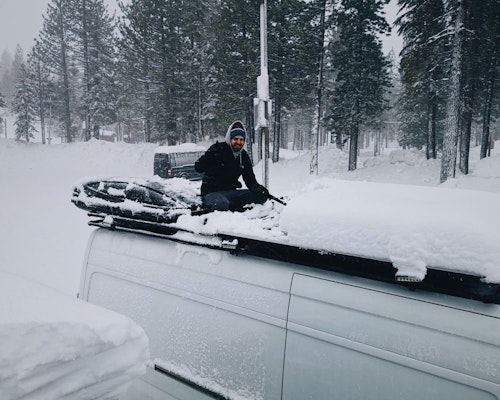
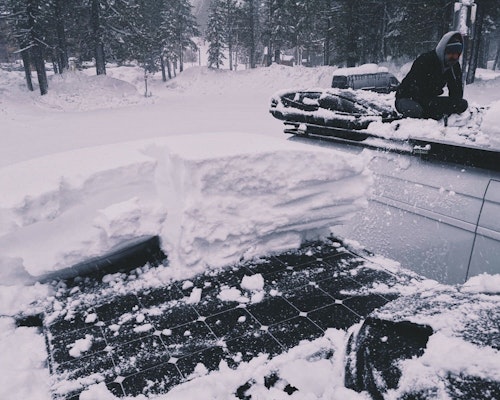
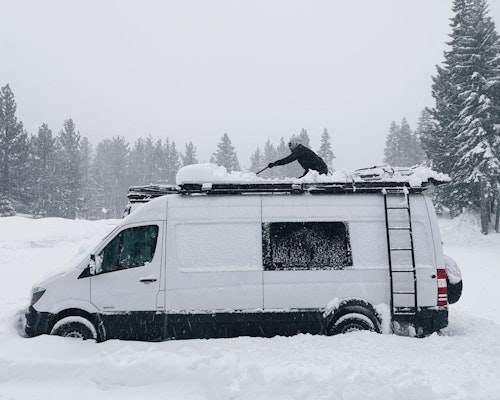
I carry an extendable car sweeper that makes it really easy to quickly clean off the panels in the winter.
Chasing snowstorms and trying to catch the best snow days are what make up Winter Vanlife, for me. For that reason, it’s crucial to plan ahead to try and stay in front of it, instead of stuck in it.
Be sure to check the weather, make a plan, and set yourself up for a challenging yet enjoyable adventure in the snow.
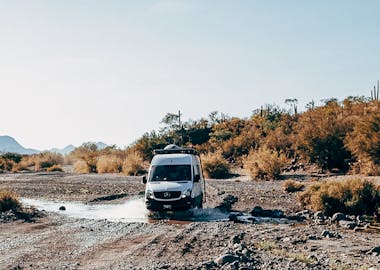)
If you’re anything like I was, you’ve probably asked yourself this question a million times while researching your upcoming van conversion project.
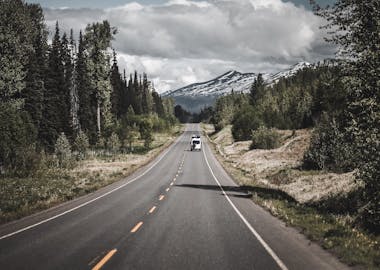)
So, you’re thinking of heading to Alaska in your van and looking for some tips and tricks about how to have the trip of a lifetime?
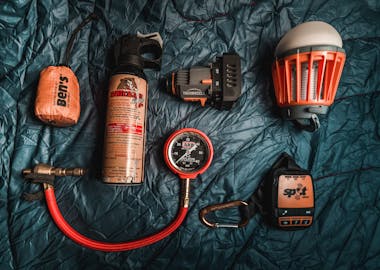)
If you’re anything like me, you’ve probably been dreaming of the day that your tires cross over the northern border from the Yukon in Canada to the ever sought after Alaskan wilderness.